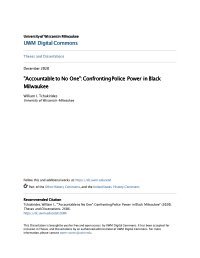By Michael German and Kaylana Mueller-Hsia
The failure of the Federal Bureau of Investigation (FBI) and other law enforcement agencies to anticipate and prepare for the January 6, 2021, attack on the U.S. Capitol by far-right insurrectionists has elicited proposals to expand the bureau’s authority to investigate domestic terrorism.
The FBI already received expansive new powers after the 9/11 terrorist attacks, and its current guidelines place few limits on agents’ ability to search broadly for potential threats. Confusion about the current scope of the bureau’s powers is understandable, however, as FBI leaders have regularly misstated their authorities in public testimony.
These misstatements deflect FBI accountability by focusing overseers on filling perceived gaps in its authority rather than examining how the bureau uses, misuses, or fails to use the tools it already has.
The real problem is not that the FBI’s authorities are too narrow, but rather that they are overbroad and untethered to evidence of wrongdoing. After 9/11, the Department of Justice (DOJ) reduced or eliminated reasonable evidentiary predicates to justify broader collection and sharing of Americans’ personal information. This new domestic intelligence process replaced evidence-driven investigations of suspected criminal activities with mass data collection and untriaged reporting of speculative harms unsupported by facts. The sheer volume of threat reporting resulting from this system suffocates effective intelligence analysis, flooding law enforcement leaders with thousands of specious threat warnings a day. In addition to unjustified invasions of privacy, the high rate of false alarms that this process produces naturally dulls the response, and the disconnect from evidence of criminality opens the door to bias-driven law enforcement responses. As they have in the past, the FBI’s unbridled authorities have resulted in abuses of civil rights and civil liberties without improving its ability to identify and mitigate real threats.
Misinformation from FBI officials has confused the policy debate. When senators investigating the January 6 attack asked Jill Sanborn, then the assistant director of the FBI’s Counterterrorism Division, whether FBI agents monitored the multitude of threats made in public forums prior to the attack, Sanborn replied, “It’s not within our authorities.”
Sanborn claimed that the FBI cannot collect information involving First Amendment–protected activities without a predicated investigation or a tip from a community member or law enforcement officer. These statements are inaccurate, yet they featured prominently in the Senate’s report on the security, planning, and response failures regarding the attack on the Capitol.
New York: Brennan Center for Justice at New York University School of Law, 2022. 21p.










